#that actor influencial
Explore tagged Tumblr posts
Text
Giving Your Characters A Unique, Distinct Voice (With Examples)
What does "unique voice" mean? Basically, every single person has their own manner of speaking. This difference can be from politeness, the volume or "loudness", confidence, emotional quality, maturity, accents, cultural slang, and other variables that can be shown in a character's voice.
This can also be shown through "prioritization". Prioritization is what a character or narrator decides is worth focusing on for any given scene.
For example, Tree of Heaven is a cynical cinematographer whose inner life is primarily eclipsed by beautiful landscapes and settings. However, Jukka is a highly dedicated actor who neglects the trees for the people, whether they be strangers or loved ones. While Jukka and Tree of Heaven could be walking through the same park, they would be focused on entirely different things. Heaven would be focused on the way the sunlight scatters through the autumn-coated, gold-platted leaves while Jukka is people-watching!
Sometimes, I use other stories and their tones as inspiration for my characters!
For Haun, their inspiration for tone came from "I Have No Mouth and I Must Scream". Specfically, AM's monologues like the "and I began to hate" or the bee monologue describing AM's thoughts on bees radio play! The reasoning behind this was the fact that Haun Anatemori, my character, is someone with deep-seated resentment. Rage and hatred born out of a feeling of injustice, self-loathing, and a feeling of deep-seated betrayal. However, Haun confines their emotions to logical actions and long-term planning meaning there is no outward way to express these emotions. Leading to his entire inner voice being coated in hatred.
Education and social standing often has the most outward influence on a character's external voice. That's the unique thing about protagonists and narrators. Because narrators don't have to worry about social standing and protagonists can have visible inner life, protagonists often have "two" voices. Their "outside" voice, aka the voice they use to speak to others, and their inner voices they use for their own feelings.
Haun's inner voice is resentful with metaphors and analogies of disgusting things such as bodily fluid used to provide an artful crassness to his voice that shows Haun's education and anger but his outer voice is far more innocent and self-contained with less verbosity as Haun is attempting to portray an innocent, less literate farmer type in order to trick others as he rises the social ladder.
Another highly influencial factor is maturity! If a character is emotionally mature, then they often have a more composed tone of voice with simple, yet profound metaphors that often express clear motivation and clear emotion. They often have accurate ideas about others and themselves. This is different from how emotional a character is! A mature character can be emotional but they have a clearer understanding of their emotions. Not the mood swing type!
Nonkosi Tyali is the most compassionate yet mature character I have with their inner voice and outward voice both having a sense of "refinement". Nonkosi understands what they want, why they want it, and how to get it. Despite their cheerful tone, it's obvious they aren't naive or out of control. Nonkosi also has remarkable observational skills as they are deeply intune to the thoughts and emotions of others which allows them to have accurate and insightful observations about other characters.
Verne Lawless, in contrast, is highly immature with a tendency for rapid mood swings, ranting, and catastrophizing. They rarely compose their emotions with them having to spend far more time detailing and failing to "accurate" translate their emotions for the audience. They rarely focus on the emotional lives of others. While Verne can use flowering, verbose words and nostalgia, this fails to counteract the obvious desperation and run-around Verne has in their thoughts.
Finally, just think about what their emotions are. This doesn't have to be something as simple as "happy" or "sad".
Verne is a nostalgic person who constantly references old classics like Jules Verne with long, verbose poetry. This is influenced by Verne's obvious intellect and his emotional center of love. However, whenever they are emotionally in a tailspin, they often resort to manic, modern slang with firey self-hatred and self-deprecation. This is due to the fact that Verne adores love but he believes that he will never find love. This desperation often leads him to be more psychologically "fragile" with his ability to contain his emotions constantly threatened.
Emotions: Mania, nostalgia, desperation, and love
Nonkosi is an optimistic person which can sometimes veer into surpressing negative emotions and experiences. They maintain the belief that they can be eternally strong and compassionate as they act more like a force of nature then the human they actually are.
Emotions: Awkward optimism, gentle melancholic, and confidence
Jukka is mostly possessed with a quiet melancholy for most of life with pretentious verbosity surrounding the nature of society in a similar vein of "No Longer Human" by Osamu Dazai. However, whenever Jukka is bound up in the passion of acting, Jukka can often dance with mania, emotional highs, and life coated in fandom and acting. Jukka's language is primarily references to media such as Main Character Syndrome, tropes, rivalry, found family, and some not really 4th Wall Breaks because Jukka believes he lives in a series but he doesn't know he is actually a written character.
Emotions: melancholy, sentimentality, and minor resentment.
#writeblr#writing#on writing#creative writing#writing advice#writers on tumblr#writers block#writerscommunity#writers and poets#writers#fiction writing#writing community#writing inspiration#writing tips#writing life#writer#writing tropes#story tropes#unique voice#character building#character development#original character#character design#character voices#character names#originalcharacter#writing dialogue#character dialogue
514 notes
·
View notes
Text

Jason Sudeikis was one of the 500 most influencial people in Hollywood last year, according to Variety.
Sudeikis is finding it hard to quit “Ted Lasso.” There’s renewed talk of bringing te Apple TV+/Warner Bros. TV series back for a fourth season after previously calling it a wrap with Season 3 in 2023. In 2023, Sudeikis also starred in Charlie Day’s indie film “Fool’s Paradise.” The actor got his start on “SNL” and went on to star in various comedies such as “We’re the Millers” and “Horrible Bosses.” In October 2024, the 2017-2018 Comedy Central series “Detroiters,” which Sudeikis executive produced, was nabbed by Netflix, giving a streaming showcase to the existing episodes. He also is part of the voice cast of Hulu’s adult animation series “Hit-Monkey.”
55 notes
·
View notes
Note
Yes! I wish more people brought this up! modern day conservative influencers aren’t talented musicians and artists and they are envious of those who are. They have talent agents and all that! Every single one started out normal.
They wanted to be special with mediocre skills but can’t make it. I can understand because my skills aren’t the best but I just keep practicing. They COULD have gone the indie route too, post their music online and keep working at it but I think they are obsessed with money and influence. That’s why grifting for conservatives online is easy cheap money.
....and that's also why there's a significant (Hollywood) celebrity who fell from grace → rightoid grifter pipeline. Have you seen Zachari Levi (Shazam actor) and Amber Rose latest stunt? Funny how conservatives didn't cockblocked them arguing that celebrity support was some silly tactic they left to Democrats. They welcomed them in their podcasts, rally, etc.
I always said conservatives were envious of the chokehold liberals had on the entertainment industry. But the thing is, you can't pretend defending traditional values/conservatism while aiming for a upheaval of the entertainment world. They are called LIBERAL arts for a reason. Conservatism is turned toward the past & self preservation, while arts are about exploring and disturbing the status quo. There will never be a relevant conservative influencial culture. That's why conservatives ALWAYS have to resort to rehash liberal slogan or viral moments.
You are absolutely right about them being too addicted to fame & attention to bow down gracefully and retire from an industry that did them "wrong". For Zachari Levi it's obvious like the nose on the face he's MAD AS HELL that Shazam 2 flopped and thought he was gonna be the next Chris Evans lol so he turned towards the rightoid grift bc after DC fans cancelled him for being an 'anti vaxxer' he knew his 15 minutes were ending and fully leaned towards the rightoid grift to grasp the last straw of relevancy he had. Rightoid are not really demanding: as long as you shit on the government they will hail you as sooo disruptive and non pc 🤩 Amber Rose? Well, it eventually dawned on her that she wasn't Black and she got shunned by the communitah after she assaulted that Black women on some trashy TV shows. She also felt the tide turning and that being a 'slut' wasn't as lucrative as 10 years ago so she's now rebuking her past and endorsing conservative. I wouldn't be surprised she becomes a full on tradwife in the next few years.
Both of them are perfect nutshell of celebrities clinging to the last shred of relevancy left wherever it is bc they felt betrayed by liberals/progressives.
I also think Candace Owens is secretly jealous of female influencer because that's what she wanted to be back when she was an anti racist activist. Same for Brett Cooper. I once sleuthed on their respective pages and analysed their thumbnail/video title, and to the surprise of nobody, most of the time, they were clowning women, and when they featured men, they either were 'neutral' or not as hard as for women (or were LGBT men = easier target)...they definitely know their audience.
Btw I'm genuinely curious about Celestial prophecy of Candace Owens being trans(?)/not what she appears to be LOL that shit would be hilarious. I remember her catfight debate with Blaire White. Those lolcow fighting was hilarious kek
6 notes
·
View notes
Text
Hey everyone! This is my first time doing this but in the following lines I’ll try very hard to convince you to watch a movie. ^^ (Yeah this isn't a balanced review of the movie, more like me just gushing about it) The name is « Sweet Smell of Success » and it’s is really underrated. However, when I went on twitter the other day, I did see that it still gets some love there which makes me very happy! You can rent it on amazon prime.
Ok but first things first. I‘m not a native english speaker so please excuse any mistakes! Also… and this is pretty important, I feel like I need to give trigger warnings because the movie deals with some heavy themes, like abusive relation ships, self harm, questionable sexual situations (sorry don’t know how to describe it) and probably more stuff that you should be midful of when watching it. It is not very explicit though in my opinion, so you won’t see any blood for example on screen. Furthermore (haha I’m trying to remember fancy words from english class ^^‘) I really love the characters as characters, that does not mean I condone any of their actions obviously.
Ok! With all of that out oft he way let’s begin!
Sweet Smell of Success is a film noir drama released in 1957, directed by Alexander Mackendrick. It is based on a nouvelette « Cosmopolitan » by Ernest Lehman and in the main roles are starring Burt Lancaster, Tony Curtis, Susan Harrison, and Martin Milner.
The movie is about a press agent named Sidney Falco (dope name btw) who works under the very powerful colomnist J.J. Hunsecker. J.J.‘s sister Susie Hunsecker is in a relationship with a man J.J. deems unworthy, which is why he wants Sidney to get them to break up. He himself does not want to ruin his relationship with his sister, who is already getting wary of him.
I will try to stay spoiler free for this first section. Later on I want to talk about more of my personal viewing experience and will probably get into Spoilers, but I’ll warn you then.
I would like to start by talking about the acting and the characters. The actors are all great but stand outs for me are Tony Curtis who plays Sidney and Burt Lancaster who plays J.J.. Even though the charcters are both very manipulative and horrible people, the two actors play them very differently, which makes it super fun to watch. Sidney is always on his feet and you can practically see how many gears in his head are turning to devise a new scheme. Tony Curtis portrays this very well through nervous gestures and facial expressions. He is also very good at showing Sidneys deceptive side and his charme. The movie establishes his motivation in the very first minutes, which is great because everything he does comes back to a desire to find financial and social success. To achieve his goals Sidney does not really care about anyone, however he is very nice to most people, in case they could be useful later. There are always a lot of people greeting him when he comes into a bar and he himself even says that he is basically keeping up appearances 24/7.
J.J. on the other hand is very calm and seems threatening even in seemingly normal conversations. In stark contrast to Sidney he does not seem that occupied with being nice and keeping appearances because he can get away with it. He doesn’t need to appease someone, peoply try to appease him.
The movie is very interesting because it portrays different kinds of power struggles and power dynamics. From a first glance it seems like J.J. is basically at the top. He is very influencial, super intimidating (like damn, I would be very scared of him in real life) and commands every conversation he is in. But inspite of all of that he still has his limitations. One of his biggest limitations is his sister Susie herself. I think she is the only person he at least tries to keep a friendly relatinship with, while also controlling every aspect of her life. I think he knows that when she decides to leave that he can’t really do anything about it, so he pressures her into staying by intimidating her, while also trying to not push her over the edge. And at the end their whole dynamic switches, which leaves him standing quietly and kind of in a crouching position behind a door. It is a little difficult to explain tob e honest and if you are someone who watched the film let me know what you think.
Another thing is that, while Sidney definitly ranks beneath him in the power pyramid if you will, he still needs him to accomplish his goals. Because as I said before Sidney is very cunning and fast to not only devise a plan but to execute it as well.
There is a lot more to say about the characters and their dynamics however I’ll stop here for now to talk a little bit about how the movie structures it scenes.
Most oft he time the Movie follows Sidney and his schemes, and there are just some scenes here and there with him missing. And it is so much fun to see scenes building on each other, while his plans get more complicated. And to be honest at least for me there never is a dull moment. Because the movie is very good at making even little scenes matter later.
Maybe I can give you an example. These scenes are mostly there to show how Sidney works and acts, so they primarily exist to characterize him and I think they are very cool. So, Sidney goes to J.J.’s Column (I think) where he visits some kind of secretary who has information on what will be printed in the next issue. He flirts with her a little (again showing how charming he can be) however she already knows that he only wants information and tells him about a comedian without existing press agent who will be featured in the paper under the headline « Funniest man in New York » or something similar like that. That scene alone is fine, however it gets really cool when he later meets said comedian. He obvously wants to get hired so he tells the Comedian that he has connections that can get the comedian into J.J.‘s paper (which is a big deal). He then proceeds to fake a phone call with J.J. (It’s hilarious because he just calls his own secretary who hangs up confused about what he is talking about). He pretends to suggest an article about the comedian and even uses the same Headline he found out about earlier. After that he goes back tot he comedian, knowing fully well that the article will be published the next day. And later in the movie the comedian comes back to hire him. (At that point he get’s ignored though, because Sidney has bigger plans). Like, Sidney is awful, sexist, racist, manipulative and overall pretty bad but it is a real delight to see what plans he comes up with.
I want to also mention the visuals of the movie. Because they are gorgeous! The movie is in black and white which I did not like for a long time because I thought it made everything look washed out and kind of dull. However the contrast in Sweet Smell of Succes is very nice! There are bright highlights and deep shadows and the lighting is often used to convey a specific athmosphere. For example when half of the face of a character is completly covered in shadows. Another neat example is how the glasses of J.J. cast some sharp shadows on his face to make him seem more menacing. A lot of it is shot at nighttime in New York, where are a lot of lights, which makes a very cool backdrop.
It is also very cool how each indovidual shot subconsciously tells us something about the relationships between the characters. J.J. is often sitting but takes still more space up in the frame to show his dominance of a scene. Or sometimes the focus of the camera shifts slightly away from a conversation that is happening in the foreground to show Sidney in the back, because he orchestrated the situation.
In general the movie is full of cool, little things and tricks. That is in the script and the visuals. In one of my favourite scenes (not because oft he content but because of how it was shot) Susies Love interest gets surroundet by corrupt police men and before anything happens it cuts tot he drums oft the Jazz band that is playing in the club he just left. Our mind automatically makes the connection that he was beaten up pretty badly, without even seeing it.
Why is all of this important? Well, as someone who likes to watch movie reviews on Youtube I feel like a criticism I hear a lot is that a movie treats ist viewers like they are too dumb to understand subliminal messages and thus becomes boring or even insulting. It is also just a lot more fun to watch a movie that does not take you out of the story wit exposition and instead let’s you figure stuff out for yourself.
This all may sound like Sweet Smell of Success is a movie without a lot of taking. But that is very far from the truth. I would actually say that the dialogue is one of its biggest strengths! Not only informs you a lot about the characters, it also includes some of the coolest lines I have heard in any media. The lines „Cat’s In The Bag … ” and “. . . And The Bag’s In The River” even served as episode titles for a show I also love very much : Breaking Bad. Side note, Sweet Smell of Sucess is also one of the favourite movies of the creator of Breaking Bad. Haha maybe that’s a more convincing argument to watch it that anything I could say. Anyways, the dialogue is also great at referencing itself at later points and creating awesome foreshadowing.
I also want to talk about the music very briefly. I think the soundtrack fits the story and overal vibe of the setting perfectly. A cool little easter egg is that the Band of which Susies Love interest Steve is a part of is also the band who made the soundtrack fort he movie.
Just for fun I want to talk about my first viewing experience, which might include Spoilers. Maybe you can watch the movie first and come back later to compare your experience to mine. However the movie does not get ruined through Spoilers. I watched it a few times already and noticed something cool and new almost every time.
For a little bit of context : I actully only watched the movie because I already liked Tony Curtis. By chance I caught Operation Petticoat on TV. And to be completly honest I just thought he was very handsome, so with nothing better to do I started to watch more movies he starred in. I did not expect to find one of my favourite movies of all time XD So I started watching and the first thing I noticed was that it was interesting to start the movie with the main character already stressed and angry. I feel like normally we get so see the characters in their „normal „ state, which get’s disrupted by an inciting incident. Sweet Smell of Success throws you right in the action though. On second thought, stressed and angry might me Sidneys default state…
Something to know is that a lot of the audience back when the movie was released did not like that Tony Curtis portayed such a scheming character. They expected him tob e a nice guy like he was in pretty much all of his other movies. And the funny thing is, I did too. It took me soooo long to finally realize that Sidney was just not meant to be a nice character. I think in one of his first scenes he even says „I‘m not a good person“ or something along those lines. For an explanation: A lot of the movie was very difficult for me to understand in english, partly because I just didn’t know the words they were using and partly because Sweet Smell of Succes’s story line is not that simple. So fort he majority oft he film I sat there a little confused but still intrigued. And then came the scene in which Sidney tries to persuade a woman into sleeping with a man for his own gain and clearly against her wishes. And I was like „???? that is not ok Sidney! How am I supposed to root for you now? Is this a 50’s thing? Did they think back then something like that was ok?“. And then later when he plants the drugs on Steve I thought for sure he would go back and save him from the police, as a redeeming moment. And when he didn’t it finally occured to me that we weren’t supposed to root for Sidney in the first place. And that is when the movie got super interesting. Because Susie pretty much finds out that Sidney and J.J. were behind the assault of her Lover (though it is a little ambiguous). And she and Sidney meet up in her and J.J.‘s apartement and honestly my heart beat so fast while watching this scene! Because you really don’t know what will happen. If there is a happy end for the main character, that would not be really a happy end, because the main character is a selfish, horrible person.
*Major Spoiler incoming* At the end Susie tries to jump of her balcony, however Sidney is barly able to rescues her. She is obviously very distraught by the whole situation and just in that Moment J.J. comes back home. As I said before the movie is not always very clear with what is going on inside of the minds of the characters however this is how I understood the ending: Sidney got a message from J.J. which ordered him to come to his apartement, however when he arrives J.J. is not there… just Susie. I am pretty sure she called him there to make it seem like he was directly responsible for her death. This way she would have taken revenge on Sidney and J.J. simultaniously, while also escaping her current seemingly hopeless living condition. And I guess this ending would have worked, however it would have been pretty dark. I love happy endings and I think the actual ending is as close as you can get to one with a movie like this. The dialogue is very well written, especially at the end. It is honestly a little to difficult to summerize all the nuances, because there are a lot of lies and truths that are made out to be lies and so on. I think you’ll need to see it for yourself.
I love the ending because it seems like every character gets what they deserve (except for Steve, poor guy is in the hospital) Sidney told Susie the truths about their schemes, which made J.J. turn on him and send a corrupt cop after him. Not only gets he beat up and who knows what happens after that but also are the chances of him achieving the goal he chased after the whole movie : finding succes, pretty much down to zero. Susie finally breaks free from her brother and goes to her boyfriend. I am really glad she did not need to die but instead gets to have a better future, symbolized by a ray of light she walks into in her last scene. You could say that J.J. gets of a little to light, however it is stated that Susie is the only family he has and that he cares for her (though in a crontrolling way). And with her breaking free from him he lost the only human connection he actually wanted in his life. At any rate it feels like a very satisfying conclusion to me.
#sweet smell of success#old movies#movie recommendation#movie 1957#50s#50s movies#tony curtis#burt lancaster#50s actress#50s actor#movie review#cinema#love this movie#criterion collection#hollywood#classic movies#movie thoughts
4 notes
·
View notes
Text
Luchino Visconti
Luchino Visconti ou Luchino Visconti di Modrone, conde de Lonate Pozzolo (Milão, 2 de novembro de 1906 — Roma, 17 de março de 1976) foi um dos mais importantes directores de cinema italianos. Era descendente da nobre família milanesa dos Visconti.
Biografia
Filho de Giuseppe Visconti, o duque de Grazzano e de Carla Erba, herdeira de uma grande empresa farmacêutica, Luchino tinha mais seis irmãos. Prestou o serviço militar como suboficial de cavalaria, em 1926, no Piemonte, e viveu os anos de sua juventude cuidando dos cavalos de sua propriedade. Além disso, frequentou ativamente o mundo da lírica e do melodrama, que tanto o influenciou.
Foi para a França, onde se tornou amigo de Coco Chanel e, através dela, em 1936, foi apresentado ao cineasta Jean Renoir, com quem trabalhou no filme Une partie de campagne. Em 1937, passou por Hollywood, antes de retornar a Roma. Na capital italiana, trabalhou com Renoir na direção da ópera Tosca.
A partir de 1940, ligou-se aos intelectuais que faziam o jornal Cinema e vendeu jóias da família para realizar seu primeiro filme, Ossessione, em 1943, com Clara Calamai e Massimo Girotti. No fim da Segunda Guerra Mundial realizou o segundo filme, o documentário Giorni di gloria. Contratado pelo Partido Comunista Italiano para realizar três filmes sobre pescadores, mineiros e camponeses da Sicília, acabou por fazer apenas um, A Terra Treme.Clara Calamai e Massimo Girotti em Ossessione (1943)
Em 1951 ele filmou Bellissima , com a grande atriz italiana Anna Magnani , Walter Chiari e Alessandro Blasetti . O primeiro filme colorido foi em 1954, Senso com Alida Valli e Farley Granger . O primeiro grande prêmio da crítica chega em 1957, quando ele recebe o Leão de Ouro do Festival Internacional de Cinema de Veneza pelo filme" Noites Brancas ", uma transposição delicada e poética de uma história de Fiódor Dostoiévski , com Marcello Mastroianni , Maria Schell e Jean Marais .
O primeiro sucesso de bilheteria viria em 1960 com Rocco e Seus Irmãos , a saga de uma humilde família de calabreses que emigrava para Milão. Foi o filme que consagrou o ator francês Alain Delon ao lado de Annie Girardot e Renato Salvatori . No ano seguinte ele se juntou a Vittorio De Sica , Federico Fellini e Mario Monicelli no filme de episódios Boccaccio 70 . O episódio de Visconti é estrelado por Tomas Milian , Romy Schneider , Romolo Valli e Paolo Stoppa .
Em 1963 dirigiu seu maior sucesso comercial e um dos filmes mais elogiados pela crítica, o grandioso O Leopardo , com três horas de duração e extraído do romance homônimo de Giuseppe Tomasi di Lampedusa , vencedor da Palma de Ouro do Festival de Cannes , que conta a história da transição da nobreza para o populismo na Sicília, nos tempos da Unificação Italiana . O filme tem um elenco estelar onde destacam Burt Lancaster , Claudia Cardinale e Alain Delon.
Vaghe stelle dell'Orsa…, um mergulho inquieto e melancólico na capacidade dos seres sensíveis para se destruírem amorosamente, com Claudia Cardinale e Jean Sorel, realizado em 1965, foi a obra seguinte. Em 1970, ele conheceu o fracasso de uma obra sua, com O Estrangeiro, extraído do livro homônimo de Albert Camus e realiza também La caduta degli dei que lançou o actor Helmut Berger.
Com o sensível e refinado Morte em Veneza (1971), protagonizado por Dirk Bogarde e baseado na obra de Thomas Mann, ele voltou a se encontrar com o sucesso de público e de crítica. O filme conta a história de Gustav Aschenbach, um compositor que vai passar férias em Veneza, e acaba por viver uma grande e inesperada paixão, que iniciaria a sua completa destruição. O filme faz uma abordagem do conceito filosófico de beleza, assim como a passagem do tempo a importância da juventude nas nossas vidas. O filme seguinte foi o grandioso, mas decepcionante, Ludwig, com Helmut Berger e Romy Schneider. Durante as filmagens de Ludwig, ele sofreu um ataque cardíaco que o prendeu a uma cadeira de rodas até a sua morte, em 1976.
Mesmo com muita dificuldade, Luchino Visconti ainda fez dois filmes, Violência e Paixão (Gruppo di famiglia in un interno) e L'innocente, sua derradeira obra, versão do romance de Gabriele d'Annunzio que registra brilhantes interpretações de Giancarlo Giannini e Laura Antonelli.
Vida pessoal e morte
Apesar dos casos amorosos vividos, em diferentes períodos, com várias mulheres, como a estilista Coco Chanel, com as atrizes Clara Calamai (1909 – 1998), María Denis (1916 – 2004), Marlene Dietrich e com a escritora Elsa Morante, Visconti jamais escondeu sua homossexualidade, explicitamente referida em muitos dos seus filmes e nas montagens teatrais que dirigiu. Segundo Visconti, em sua autobiografia, ele e o rei Humberto II da Itália tiveram um relacionamento amoroso durante a juventude na década de 1920. Nos anos 1930, em Paris, teve um relacionamento com o fotógrafo Horst P. Horst. Entre o final dos anos 1940 e o início dos 1950, já consagrado como diretor, manteve uma longa relação afetiva e profissional com o seu então cenógrafo Franco Zeffirelli, que vivia então na villa do diretor, na via Salária, em Roma.
Depois de 1965, Visconti foi ligado ao ator austríaco Helmut Berger , que também atuou em alguns de seus filmes. A relação se manteve, com altos e baixos, até a morte de Visconti, em 1976.

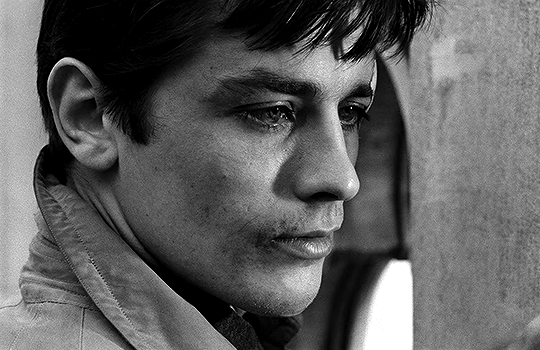


ALAIN DELON Rocco and His Brothers (1960) dir. Luchino Visconti
2K notes
·
View notes
Text
i agree its absolutely insane to say that shit about a lawyer who's actively playing a huge role in ending this genocide
but i also think we SHOULD expect actors and musicians and comedians to speak out. the people who are off playing in rich people land instead of actually helping. all of those people SHOULD ABSOLUTELY be talking about Palestine, because their whole job is their platform. With them, I do think their lack of advocacy is complacency.
When celebrities speak out about something, the people who idolize them listen. Taylor Swift can't single handedly make colleges divest, but we've seen what a collective can do. If someone as influencial as her were to advocate for something like college divestments, of course more people would fight for it.
we always need more people fighting for our cause. influencers can influence people to do that. that's why they're influencers.
People with platforms have a responsibility to speak out.
I don't think not speaking out makes them "evil" people, but it shouldn't be tolerated. it shouldn't be allowed to ignore a fucking genocide. it's cowardly and people need to be calling celebrities out for it.
But yeah, a lot of this "calling out" is aimed towards completely the wrong people. I have a feeling all the people targeting that lawyer weren't causing the same trouble for all the silent celebrities. This is obviously unhelpful.
I think we need to stop thinking about calling people out as a blind, exceptionless, everyone v everyone thing. It needs to be strategic. We shouldn't be doing this because of some moral high ground or purity thing because that doesn't actually get anything done. We have to focus our efforts towards certain people (or companies! or anything! what im saying is true for all activism) in order to actually make a difference. If one large celebrity actually got bad press for not speaking out, that would freak all the other ones the fuck out. so they'd probably start talking about it.
Loving the new counterpoint that not only is posting activism, not posting is complicity. Why doesn't everyone with any fame or internet presence immediately release a lengthy but perfectly-worded statement telling us where they stand on every issue? Is it because they're evil??? It must be because they're evil
And then the usual answer is "they don't post online very much". Which is all very suspicious, don't they know everything of importance is done by posts on social media now
26K notes
·
View notes
Text

Jason Sudeikis is one of the 500 most influencial people in Hollywood, according to Variety.
Sudeikis is pursuing his third comedy lead actor Emmy in a row for “Ted Lasso” — the show he created and stars in. The series has racked up 11 Emmys so far, earning 21 more nominations for its third season. “Ted Lasso” was a leader in putting Apple’s original content on the map; CEO Tim Cook even showed up at the show’s Season 3 premiere. Sudeikis also recently starred in Charlie Day’s “Fool’s Paradise.” The actor got his start on “SNL” and went on to star in various comedies such as “We’re the Millers” and “Horrible Bosses.” Sudeikis has not confirmed Season 3 as the last for “Ted Lasso,” but the speculation over how the series will live on — through another season or a spinoff — goes to show the impact of Sudeikis’ creation.
57 notes
·
View notes
Photo
Luchino Visconti, Farley Granger, Rome 1954
Luchino Visconti
Luchino Visconti ou Luchino Visconti di Modrone, conde de Lonate Pozzolo (Milão, 2 de novembro de 1906 — Roma, 17 de março de 1976) foi um dos mais importantes directores de cinema italianos. Era descendente da nobre família milanesa dos Visconti.
Biografia
Filho de Giuseppe Visconti, o duque de Grazzano e de Carla Erba, herdeira de uma grande empresa farmacêutica, Luchino tinha mais seis irmãos. Prestou o serviço militar como suboficial de cavalaria, em 1926, no Piemonte, e viveu os anos de sua juventude cuidando dos cavalos de sua propriedade. Além disso, frequentou ativamente o mundo da lírica e do melodrama, que tanto o influenciou.
Foi para a França, onde se tornou amigo de Coco Chanel e, através dela, em 1936, foi apresentado ao cineasta Jean Renoir, com quem trabalhou no filme Une partie de campagne. Em 1937, passou por Hollywood, antes de retornar a Roma. Na capital italiana, trabalhou com Renoir na direção da ópera Tosca.
A partir de 1940, ligou-se aos intelectuais que faziam o jornal Cinema e vendeu jóias da família para realizar seu primeiro filme, Ossessione, em 1943, com Clara Calamai e Massimo Girotti. No fim da Segunda Guerra Mundial realizou o segundo filme, o documentário Giorni di gloria. Contratado pelo Partido Comunista Italiano para realizar três filmes sobre pescadores, mineiros e camponeses da Sicília, acabou por fazer apenas um, A Terra Treme.Clara Calamai e Massimo Girotti em Ossessione (1943)
Em 1951 ele filmou Bellissima , com a grande atriz italiana Anna Magnani , Walter Chiari e Alessandro Blasetti . O primeiro filme colorido foi em 1954, Senso com Alida Valli e Farley Granger . O primeiro grande prêmio da crítica chega em 1957, quando ele recebe o Leão de Ouro do Festival Internacional de Cinema de Veneza pelo filme" Noites Brancas ", uma transposição delicada e poética de uma história de Fiódor Dostoiévski , com Marcello Mastroianni , Maria Schell e Jean Marais .
O primeiro sucesso de bilheteria viria em 1960 com Rocco e Seus Irmãos , a saga de uma humilde família de calabreses que emigrava para Milão. Foi o filme que consagrou o ator francês Alain Delon ao lado de Annie Girardot e Renato Salvatori . No ano seguinte ele se juntou a Vittorio De Sica , Federico Fellini e Mario Monicelli no filme de episódios Boccaccio 70 . O episódio de Visconti é estrelado por Tomas Milian , Romy Schneider , Romolo Valli e Paolo Stoppa .
Em 1963 dirigiu seu maior sucesso comercial e um dos filmes mais elogiados pela crítica, o grandioso O Leopardo , com três horas de duração e extraído do romance homônimo de Giuseppe Tomasi di Lampedusa , vencedor da Palma de Ouro do Festival de Cannes , que conta a história da transição da nobreza para o populismo na Sicília, nos tempos da Unificação Italiana . O filme tem um elenco estelar onde destacam Burt Lancaster , Claudia Cardinale e Alain Delon.
Vaghe stelle dell'Orsa..., um mergulho inquieto e melancólico na capacidade dos seres sensíveis para se destruírem amorosamente, com Claudia Cardinale e Jean Sorel, realizado em 1965, foi a obra seguinte. Em 1970, ele conheceu o fracasso de uma obra sua, com O Estrangeiro, extraído do livro homônimo de Albert Camus e realiza também La caduta degli dei que lançou o actor Helmut Berger.
Com o sensível e refinado Morte em Veneza (1971), protagonizado por Dirk Bogarde e baseado na obra de Thomas Mann, ele voltou a se encontrar com o sucesso de público e de crítica. O filme conta a história de Gustav Aschenbach, um compositor que vai passar férias em Veneza, e acaba por viver uma grande e inesperada paixão, que iniciaria a sua completa destruição. O filme faz uma abordagem do conceito filosófico de beleza, assim como a passagem do tempo a importância da juventude nas nossas vidas. O filme seguinte foi o grandioso, mas decepcionante, Ludwig, com Helmut Berger e Romy Schneider. Durante as filmagens de Ludwig, ele sofreu um ataque cardíaco que o prendeu a uma cadeira de rodas até a sua morte, em 1976.
Mesmo com muita dificuldade, Luchino Visconti ainda fez dois filmes, Violência e Paixão (Gruppo di famiglia in un interno) e L'innocente, sua derradeira obra, versão do romance de Gabriele d'Annunzio que registra brilhantes interpretações de Giancarlo Giannini e Laura Antonelli.
Vida pessoal e morte
Apesar dos casos amorosos vividos, em diferentes períodos, com várias mulheres, como a estilista Coco Chanel, com as atrizes Clara Calamai (1909 – 1998), María Denis (1916 – 2004), Marlene Dietrich e com a escritora Elsa Morante, Visconti jamais escondeu sua homossexualidade, explicitamente referida em muitos dos seus filmes e nas montagens teatrais que dirigiu. Segundo Visconti, em sua autobiografia, ele e o rei Humberto II da Itália tiveram um relacionamento amoroso durante a juventude na década de 1920. Nos anos 1930, em Paris, teve um relacionamento com o fotógrafo Horst P. Horst. Entre o final dos anos 1940 e o início dos 1950, já consagrado como diretor, manteve uma longa relação afetiva e profissional com o seu então cenógrafo Franco Zeffirelli, que vivia então na villa do diretor, na via Salária, em Roma.
Depois de 1965, Visconti foi ligado ao ator austríaco Helmut Berger , que também atuou em alguns de seus filmes. A relação se manteve, com altos e baixos, até a morte de Visconti, em 1976.

63 notes
·
View notes
Text
Lovers Walking in the Snow (Crow and Heron) - Suzuki Harunobu (1725–1770) - The Met Museum -
Ukiyo-e, meaning "paintings of the floating world", was a style of popular art that focused on depicting scenes from everyday life, mainly depicting urban society, entertainment, and culture of the period.
Harunobu is notable for being one of the pioneers in developing the nishiki-e technique, which involves printing multiple colors using wooden blocks.
He was one of the first artists to fully exploit the potential of this technique, creating colorful and delicate images that were highly popular among the emerging merchant class of the Edo period.
Many of Harunobu's works depict elegant women, leisure scenes, kabuki actors, and poetic themes.
He played an important role in popularizing the bijin-ga format, which focused on portraits of beautiful women. His depictions of women were often characterized by gracefulness and beauty, contributing to the development of feminine aesthetics in ukiyo-e.
His work influenced subsequent generations of artists and contributed significantly to the evolution of ukiyo-e as a distinctly Japanese form of artistic expression. -/- "Crow and Heron" suggests the presence of two distinct birds, a crow and a heron, in a composition that can capture attention for its simplicity and elegance. Harunobu was known for his ability to depict delicate details, especially in his colorful works.
Birds can have symbolic meanings in the Japanese cultural context, and the choice to represent a crow and a heron can have poetic or mythological implications. Furthermore, the presence of birds in his work could serve as a reminder of the ephemerality of life, a recurring theme in Japanese art.
edisonmariotti @edisonblog
.br
Amantes andando na neve (Corvo e Garça) - Suzuki Harunobu (1725–1770) - Museu Met -
Ukiyo-e, que significa "pinturas do mundo flutuante", era um estilo de arte popular que se concentrava em retratar cenas da vida cotidiana, retratando principalmente a sociedade urbana, o entretenimento e a cultura da época.
Harunobu se destaca por ser um dos pioneiros no desenvolvimento da técnica nishiki-e, que envolve a impressão de múltiplas cores a partir de blocos de madeira.
Foi um dos primeiros artistas a explorar plenamente o potencial desta técnica, criando imagens coloridas e delicadas que foram muito populares entre a emergente classe mercantil do período Edo.
Muitas das obras de Harunobu retratam mulheres elegantes, cenas de lazer, atores kabuki e temas poéticos.
Ele desempenhou um papel importante na popularização do formato bijin-ga, que focava em retratos de mulheres bonitas. Suas representações de mulheres eram frequentemente caracterizadas pela graciosidade e beleza, contribuindo para o desenvolvimento da estética feminina no ukiyo-e.
Seu trabalho influenciou gerações subsequentes de artistas e contribuiu significativamente para a evolução do ukiyo-e como uma forma distintamente japonesa de expressão artística. --/- “Corvo e Garça” sugere a presença de duas aves distintas, um corvo e uma garça, numa composição que consegue captar a atenção pela sua simplicidade e elegância. Harunobu era conhecido por sua habilidade de retratar detalhes delicados, especialmente em seus trabalhos coloridos.
Os pássaros podem ter significados simbólicos no contexto cultural japonês, e a escolha de representar um corvo e uma garça pode ter implicações poéticas ou mitológicas. Além disso, a presença de pássaros em sua obra poderia servir como um lembrete da efemeridade da vida, tema recorrente na arte japonesa.

1 note
·
View note
Text
of course.
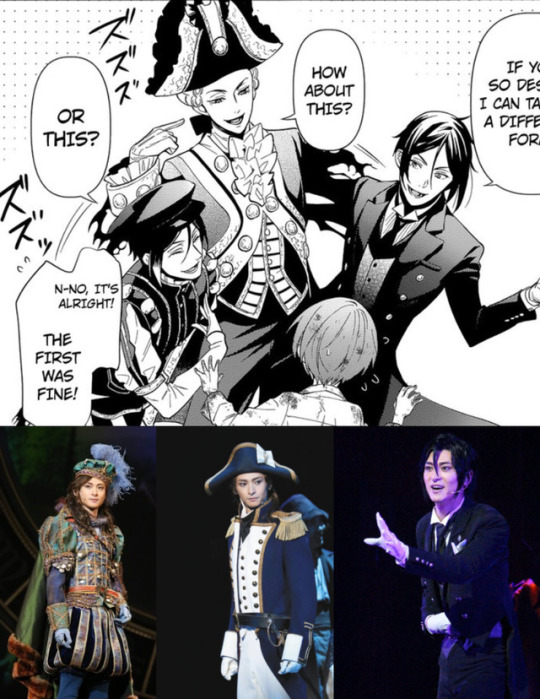
#that actor influencial#kuroshitsuji#black butler#kuromyu#furukawa yuta#yuta furukawa#yunbastian#marie antoinette#im still pissed i cant find yutas version of すべてはあなたに and i cant afford the dvd#i wish i could support the cast
413 notes
·
View notes
Photo




você pode curtir ou compartilhar se salvar.
© créditos @ / anabaysel no twitter.
#gamze headers#can yildirim#can yilidirim headers#mavi erçel yildirim#mavi headers#turkish aile#turkish headers twitter#twitter headers dizis#twitter turkish aile#turkish actor#gamze erçel yildirim#gamze erçel yildirim headers#turkish#Turkish actress#twitter headers actress#headers actress#turkish actress twitter#headers actress turkish#turkish influencier#anabayselgamze
0 notes
Photo

Yesss for the cheekbones y’all!! #Repost @jonnajohnson1 Congrats to #Author, #Influencial Speaker, #Athlete, #Actor, TV #Celeb and more... 👌🏽 @steviebaggsjr You are ready for Advanced Chubbuck studies! Phenomenal study with you and looking forward to watching your journey fueled with Empowerment through our arts! @ivanachubbuckstudio ❤️ #CoachedByJonnaJohnsonINC #ActorsStudy #TheChubbuckTechnique #ThePowerOfTheActor #Celebrity #EmpoweredThroughTheArts #westaybookedcbjj #StevieBaggsJR https://www.instagram.com/p/B9hYStEFeKa/?igshid=lx0kbr841g6l
#repost#author#influencial#athlete#actor#celeb#coachedbyjonnajohnsoninc#actorsstudy#thechubbucktechnique#thepoweroftheactor#celebrity#empoweredthroughthearts#westaybookedcbjj#steviebaggsjr
0 notes
Text
The Forgotten Shounen: Katekyo Hitman Reborn

This is not a “Why you should watch/read khr” or anything like that. This is just me going into the deep dive and throwing my findings at you. I’m making this because khr used to be my favourite series when I was 15 (I had plushees, posters, tradingcards, the art book etc) and now as an adult I constantly find myself baffled at how unknow it seems to be.
1. Okay first what is khr?
Katekyo Hitman Reborn! or just Reborn! is a series by Akira Amano which was published in Weekly Shounen Jump from 2004 to 2012 (with 42 volumes) and got an anime adaption which run from 2006 to 2010 on Tv Tokyo (with 202 episodes and one OVA).
2. What’s it about?
Khr is a parody of the italian mafia and plays in a world where the mafia is heavily influencial. The protagonist is the japanese middle schooler Sawada Tsunayoshi who is known as “No good Tsuna” because of his failing grades, general weak and cowardly personality and weak physics.
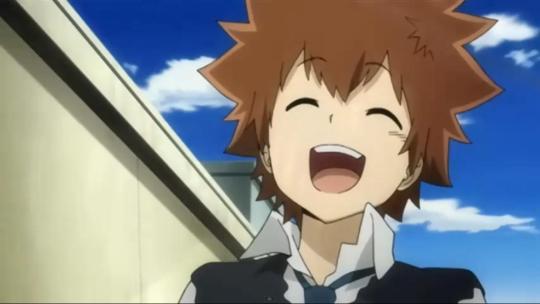
He becomes aware of the mafia world when a 2 year old baby called Reborn arrives at his house claiming to be the greatest hitman and declaring himself his home tutor. Reborn was send by the 9th head of the Vongola famiglia who is ready to retire and looking for a new heir. Which of course, is supposed to be Tsuna and now it's Reborns job to shape him into a worthy sucessor.
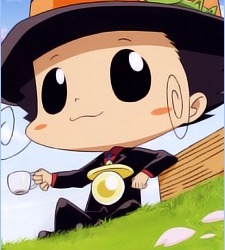
Tsuna rejects the violence of the mafia world and refuses the position as the 10th. Thanks to Reborn and his general craziness Tsuna meets different people and starts to make real friendships. Reborn wants 6 of those friends to be Tsuna's future guardians, basically a group of people which will be closest to him in the vongola famiglia. Tsuna might have no interest in those positions but the friendships he builds with them become really precious to him.
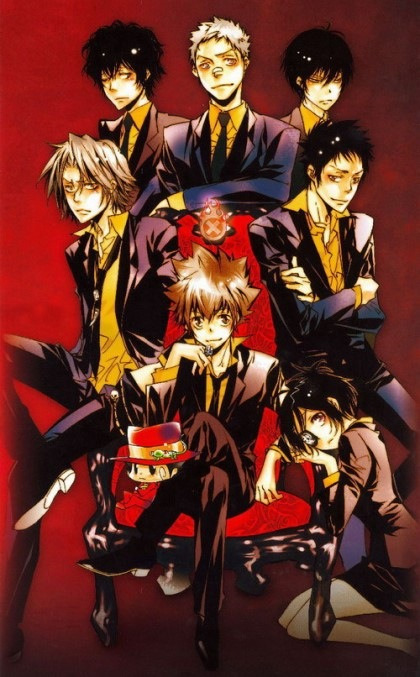
Reborns arrivial also brings in the enemies of the Vongola family which leads to Tsuna being forced to engage in battles. Generally Tsuna openly avoids fights and prefers to run away but will put himself in danger for his friends' sake or because of something Reborn did.
Through out the series Tsuna matures and gains strenght but he never becomes a power fantasy. He's just a guy with many flaws who grows through the human connections he makes.
Personally I think the relationship between Reborn and Tsuna is one of the best student teacher reltaionships in all of manga only topped by Mob and Reigen from Mob Psycho 100. Especially the last arc really underlines their unique relationship to me.
Furthermore, khr offers a new and unique battle system: The flames. I'm not gonna go into to too much detail but the general idea is that one fights with their dying will flame which basically turns off your the savety switch so you can fight with everything you have. The flames are seperated into different categories such as: sky, storm, mist, rain, sun, lightning and cloud and have different attributes asigned to each one. Tsuna's use of the sky flame and his transformation when using it is still one of my favourite shounen transformations to this day.
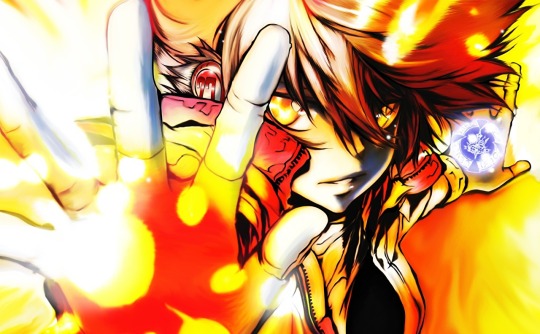
3. What happened?
The series did really well and then not so well over the course of its serialisation. After the manga got an anime adaption it increased in populairty and video games, light novels, and other products such as CDs were created based on the series. Reborn is one of the best selling series of Weekly Shōnen Jump and has sold around 30 Million volumes overall. It was and still is very popular in Japan but rather unknown in the west.

According to the article "The Rise and Fall of Weekly Shonen Jump: A Look at the Circulation of Weekly Jump" khr was the 10th bestselling series in Weekly Shōnen Jump, with a total of 7 million copies sold in 2007.
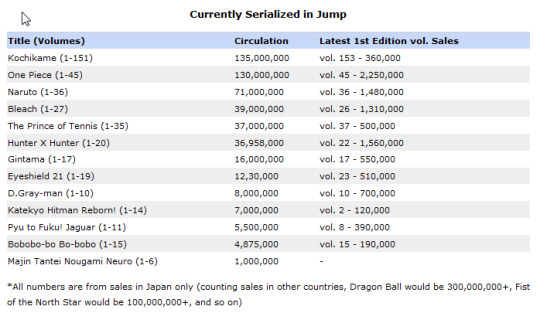
This number increasing to 15 milion in 2008. Which placed khr into the 4th best selling series of 2008 in Japan.
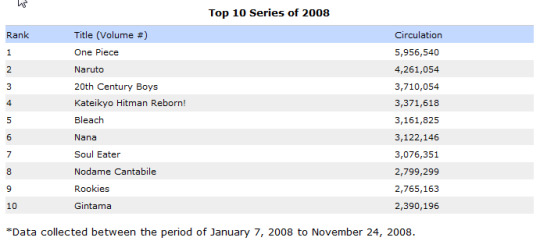
Between 2008 and 2010 those sales declined but still kept strong with khr as the 6th top selling manga in 2009, 8th best selling in 2010 and then 24th best selling in 2012.
In November 2014, readers of the Da Vinci magazine voted khr number 17 on a list of Weekly Shōnen Jump's greatest manga series of all time.
After the anime came to an apprupt stop in 2010 for unknown reasons the manga sells took a visible hit. (Apparently the studio wanted to put the anime on halt because they were busy with other projects and give Akira Amano time to develop her story but I couldn't find any source for this claim) Furthermore, the rushed last chapters of the manga in 2012 declined the popularity of the series even more. There's no offical statement as to why the manga was ended in such a way but it's reasonable to assume that Jump either cut it considering the decreasing sales or Akira Amano choose to end it for personal reasons.
Nontheless, Tsuna not being included in Jump Force (a fighting game where you can play as different characters from Jump) in 2019 even tho he made it in earlier Jump Stars games also underlines the decreased interest in the series.
Rumors on a reboot or anime adaption of the last two arcs surface from time to time but are genereally unlikely. Artland the studio which made khr has gone bankrupt around 2015-2016. It might be taken on by another studio but rather uncommen especially with such an old series.
4. Art style
The khr anime ended over 10 years ago and the old art style might not be appealing to newer audiences.
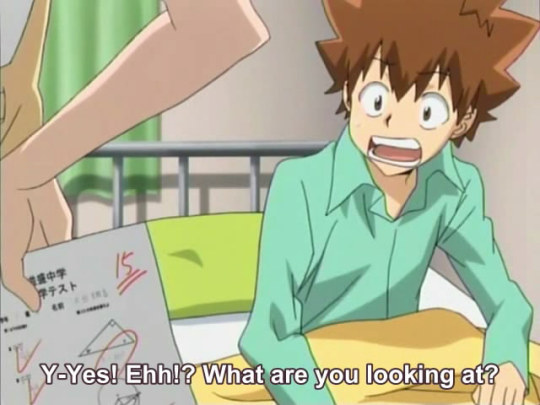
Especailly because the anime adaption follows Akira Amanos old art style which heavily developed within the years. Here a picture comparing characters in the new art style:
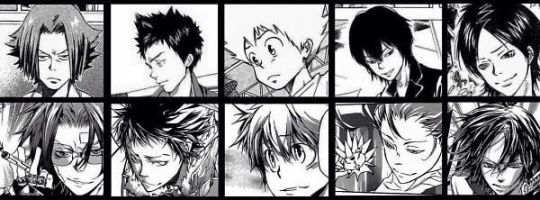
A modern anime adaption in the new art style would be aesthetically pleasing. It would probably look similiar to Psycho Pass since Akira Amano did the concept art for this series.
(My personal art student hot take is that both art styles are unique and fun. Up to this day Akira Amano still has my favourite art style and even if the amount folds in the characters clothing is a little extreme I love it dearly.)
5. Criticism
The show is not without flaws and even if I greatly enjoy it it wouldn't be right not to adress them.
Daily Life Arc:
A lot of people view the first 20 to 25 episodes as fillers and quickly lose intererst in the series. This is due to the fact that Akira Amano inteded the series to be a gag manga and focuses the first chapters on world building, character introduction and comical narratives. It's rumored that the decision to develop the story into a battle shounen was made because the sales weren't doing well enough at first. So the first chapters/episodes may seem titidious but are necessary for the story and the development of the characters. The tonal shift from a more gintama like gag manga to a darker battle focused story can also be offputting to some viewers.
Either way a lot of people blame this arc when discussing why khr never got an english dub or didn't end up on Toonami. I've also read that the manga never finished serializing in the north america. However, it finished in other western languages like german and spanish.
Censoring:
The anime censors A LOT. From Gokudera's smoking habit, Yamamoto's whole character arc which deals with heavy themes such as depression and suicidal thoughts. The general bloodiness of the manga was censored and sometimes whole chapters and characters were left out even if those were important to the devolopment of others.
Filler episodes:
Out of the 202 episodes the anime has around 29 filler episodes which makes roughly 14 %.
Sexism:
Even if Reborn was written by a woman most female characters are rather flat and their storylines often tied to a male character in one way or another.
Genereal things:
Khr, like many other long running series, is sometimes criticised for a lack of world building or unpopular narrative choices.
6. Hope?
Khr isn't exactly dead. As stated before the series is still very popular in Japan and still gets new merch pretty regulary. There are also petitions floating around for a reboot or a new anime season but those never get a lot of traction. Furthermore #Reborn2期アニメ化 (#Reborn2ndAnimation) used to get some traction on twitter not too long ago. Last year the Anime News Network did a poll on which anime the readers would like to see a rebooot of and khr placed second.
Either way here's a collection of recent khr things I could find.
- In 2018 a new bluray set was released in north america
- The khr stage play reached yet another new season
- A mobile game was released last year
- Currently ongoing anime cafe event called "Concerto di Vongola"
- Last month there was an event with the former VAs and stage play actors where they discussed their favourite khr episodes.
- There has been an increase in blind reacts to the openings on youtube which might bring in a new fan base. The biggest one I could find had around 90k views and was made in 2019. On this note check out the soundtrack. The first openeing Drawing Days by SPLAY still makes me go insane (but I'm biased of course)
There also renewed hope for a new season/reboot because Shaman King, Inuyasha and Bleach got anounced for new seasons after a long hiatus. It's important to keep in mind that the circumstances for those series are differnt tho. For example bleachs new anime is often tied to the immense success of the gatcha game.
7. Conclusion
Khr is a series which used to be a flagship for Weekly Shounen Jump and is deeply beloved by it's fans, especially in Japan. It influenced other shounen series like bnha. It would be nice to see it gaining a bigger fanbase in the west :)
363 notes
·
View notes
Text
Please understand this about media
*sighs* Really. I want you all to just understand one important thing about media: If you are not reading a self-published book or comic, there is not one person, who made all the decision. Not even with indie auteur movies. Not with TV shows that were dominated by "the one guy".
Sure, there are productions where certain creative voices were clearly dominant. And the less people were in decisive positions (like writer or director) the more power those people tend to hold. But... Unless you are explicitly told by someone who made what decision, you cannot know!
I always see people reading things one way or the other, often completely ignoring how media production works. Media production is a team effort. Even if you have the one writer-director. Because maybe there is a producer saying "This won't fly", maybe there is an actor saying "I won't do the scene like this", maybe there is just somebody saying "I think it works better this way".
Even with books. If they are published by an imprint of any sort, there will be an editor giving their feedback and maybe the publisher says "I love this book, except these three chapters, so redo them." Look, my book had originally had a different finale. But the publisher was of the opinion that it needed more action. So it got more action.
And the more money is involved, the more people will have a say.
Like, just looking over my own fandoms. Three of them (Digimon, Castlevania and Arcane) are game adaptions. So at least the game publisher will always have had some say and be it just an ability to green- or redlight all decisions. Being series with bigger budgets, they also had some other companies giving money. All of which got a say. Even with Castlevania that only had one writer, that writer had no complete creative control over the project. There were others giving their input.
My other fandom, Pirates of the Caribbean, shows this even more, because in the end it s a Disney production and Disney tends to overproduce things. Aka things don't go "three times" through approval, but a hundred times.
So, for the love of god, don't just go and attribute anything to this one person, if you don't have a proper source on them having called that shot. It just ignores the complexity of productions like that.
Yes, you might be right about it. But you also may be wrong about it.
And I am seeing it over and over happening againd and again. Back with Digimon Kakudou got credited with any and all decisions made for the first two seasons, even those of which we know that Masaki or Seki or Hosoda had made them. Same with Tamers, where Konaka gets all the credit, even though he wrote so much about who made what decision. (Like in Digimon Tamers we really know a fuck-ton about the production, because Konaka blogged about it and talked very much about how it was a team-effort.)
Were either creative voices maybe more influencial than those of the other writers or directors? Sure. Might be. But they did not make those decisions alone.
I just hate this, because... it spins a narrative that is so much more simplified than reality. Not only does it devalue the work of everyone else, but it also often tends to make the world so much more stupid, with people spinning productions into stories of "a good and a bad creator", which... Yeah, it's not that easy. It is not.
Please just try to respect the many people who worked on creating you media. You can still critique it, without making it a story about "a bad guy", who made bad decision because he is this or hates that. Just as you can make a critique based on "yeah, some production meddling happened" without blaming a certain person as long as you don't know.
Again: Sure, there are true auteur things, but... look, most media productions are not books or Undertale.
2 notes
·
View notes
Note
I re read my answer and it is very rude. I'm sorry anon (if you even see this).
I do understand that it's very annoying to look for your favorite characther and see things you don't want to/don't think fits. That's why I agreed to not do it anymore and delete the tags from the posts I did.
But it truly annoyed me how this was phrased because itales it appear I'm spamming tags. That I'm marking all characthers an actor did or something. There is only one or two posts that might fit this ask and both are about how the actor historic and controversies influenciate on how I read and interact with his perfomance as Riddler. It wasn't a random span tag thing but I doubt anyone reading only the question would think otherwise.
Can you please not put actor discourse in the riddler tag
Well sure. But I was specifically refering to his performance as Riddler so it had a very clear reason. I will stop anyway. But it had a reason.
2 notes
·
View notes
Text

Charisma Carpenter's full statement is here. I highly recommend reading it.
I think I'm always going to have a lot of complex feelings about Joss Whedon.
On the one hand, he created a lot of shows that were hugely influencial on me, shows that introduced me to concepts, and actors, and forms of storytelling I still enjoy to this day. He also inspired so many of my favourite creators to go out and make more cool stuff.
On the other hand, he has proven himself time and again to be a fucking monster. And, in that sort of parasocial grooming way, I think he normalised a lot of things for me that never should have been normalised. I internalised that the idea of feminism that he was selling, and I had to unlearn a lot of that shit in adulthood to undo a lot of toxic ways of thinking.
I will never be able to undo the influence he's had on my life, and honestly, I don't want to. Buffy was my gateway into fandom, and being part of fandom has brought me so many amazing things in life. I built who I am today on what I learned from Buffy, and Angel, and Firefly, in the same way so much of who I am was influenced by Harry Potter. I like who I am, and I don't want to undo any piece of it.
However, I will never make excuses for this man, endorse his works, or give him any of my fucking money EVER again. Because if there's one thing Buffy thought me? Monsters can be slain.
So let's drive a stake through this pathetic little monster's heart, so he can't hurt anyone else.
#Charisma Carpenter#Joss Whedon#Anti Joss Whedon#Abuse#Personal#Buffy#Buffy the Vampire Slayer#btvs#Angel#ats#Firefly#Dollhouse#MCU#DCEU#Justice League
192 notes
·
View notes